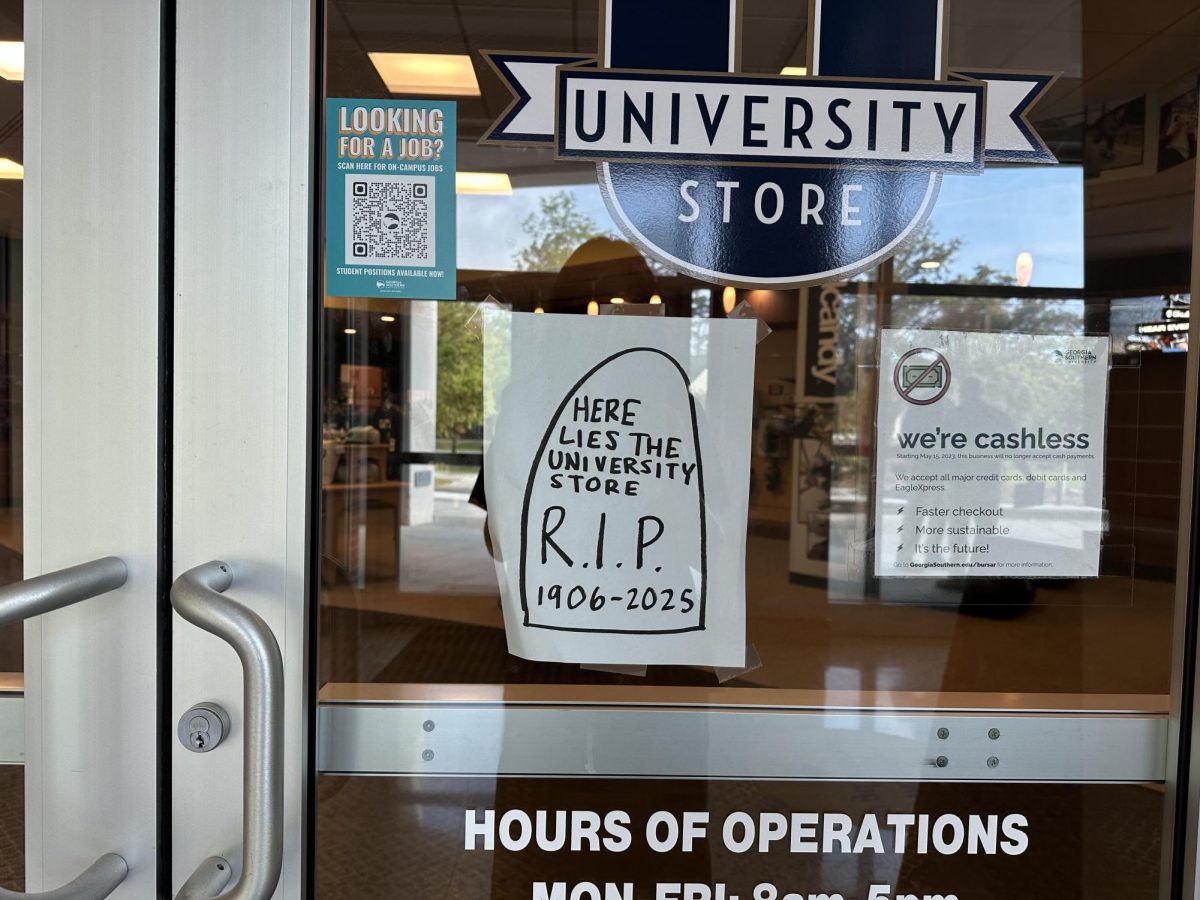In March, President Donald Trump signed an executive order to dismantle the Dept. of Education and hand the power back to individual states.
“Closing the Department does not mean cutting off funds from those who depend on them—we will continue to support K-12 students, students with special needs, college student borrowers, and others who rely on essential programs,” said Secretary of Education Linda McMahon in a letter on the US Dept. of Education website.
The Dept. of Education (ED) primarily deals with funding and civil rights for federally funded schools. It does not determine curricula, according to their website. .
“I think, for the most part, it is a good thing because it’s going to decentralize and refresh the education system that we have in place right now. The financials and regulatory aspects of our current education system are currently messed up in regards to censoring and different aspects of free speech and diversity requirements,” Eric McCarthy, a first-year creative writing major, said.
McCarthy, a native of Perry, GA, also said that handing the power back over to states will allow for curated “educational opportunities” based on the leading industries or “needs” of the area.
“I would like to see more of our taxpayer dollars being regulated better in terms of better hiring by the board system. I think it would be good if money was spent better, just more broadly, if people were hired and based more off their qualification and what kinds of education they have,” he said.
Tria Talley, a second-year psychology major, has worries about education being shifted to state power.
“I feel like it is a dangerous step in the wrong direction. It is going along the recent trend of anti-intellectualism in the United States and in the West, in general, but more specifically here. It could be damaging towards our scientific progress that we’ve been making, we could be going back a lot of those ways,” Talley said. “The threat that it really causes to students currently with the Pell Grants and other grants and loans that are supposed to be given out to lower income students, that has to be money that gets pulled from somewhere else now and I feel like that’s dangerous and kind of predatory to people who are already being predatorily come after for loans.”
Talley said that we are “moving backwards in the fight” and that “religious ideology is gonna hold more weight” if this power is handed back to the states.
Talley agrees with Senator Bernie Sanders’ idea that higher education should be free or available at a reduced cost.
“I think there needs to be less of a barrier of entry and more funding put into schools so that our people in our country can be more educated,” Talley said.
Xavier Guzman, a philosophy major, also said that Trump’s decision is worrying.
“I feel like it will be far worse for minority communities because a lot of them depend on funding from the government, and if it’s sent back to the states, then the funding will be taken away,” Guzman said.
Matthew Sullivan, a second-year psychology major, said that this is “part of his long-standing, sort of long-standing ploy on the part of Trump as well as the broader conservative movement to eliminate the ability of the American public to fight back against what he is trying to do to the country.”
“If he gets away with what he is trying to do, then it will be corrupted. It will no longer be an education designed around giving people information, it will be education designed around the upholding and the praise of Trump and every ideology that he supports,” he said.
In January, the White House issued a press release on its intention to remove DEI programs from federally funded institutions.
Sullivan said that removing DEI programs or discussions “is ridiculous,” and that they “prepare people to interact with the world.”
Eva Lee, a first-year psychology major, said it could have bad effects on children’s education.
“It might be more regulated, and what kids learn in classes might be more censored, and that will affect their long-term learning,” Lee said.
Lee said that it will now be up to parents to educate their children on topics not discussed in the classroom.
“I would like for more honest conversations on history, especially with slavery and black history, because there was a lot growing up that I didn’t know about, you know, slavery and stuff, and I feel the more they regulate it, the less we’ll know. So, I think there should be more, like, talk about, like, our flaws as a country,” Lee said.
“With the defunding and removal of the Department of Education, many parents will not be able to put their kids in school, which will cause a loss in the amount of work—working people,” Noella Salley, a first-year elementary education major, said.
“There are better ways to do that. Like, I have family members who don’t fit into the bubbles,” Salley said. “Like inclusion, special needs, and public speaking, but with the way Trump is going with his audits with the support of Elon Musk, it is going to change everything radically. A lot of stuff we had access to before will be limited.”
Salley said that our educational institutions should focus on “children’s needs” rather than “where they should be or where they have been.”
Olivia Saradinski, a second-year elementary education major, said that she is “on the fence” about Trump’s efforts to remove the ED.
“Personally, as an education major, I think that he’s trying to, well, from what I understand, he’s trying to give more power to the states, and I think that would give more liberty to individual teachers and how they wanna run their classes,” said Saradinski.
Saradinski believes programs funded by the ED, like Title I, are “great” and “help kids stay out of trouble.”
Title I is a federally funded program meant to provide children from low-income families with equal educational opportunities.
Anna McVay, a second-year elementary education major, said she feels “indifferent” about the matter.
“Personally, I am more conservative, and maybe I’m hoping that teachers will have more liberty with what they teach rather than them having to follow a strict curriculum that may not be what is best for the students,” McVay said.
“I would like it to be more focused on the students individually rather than them succeeding as a class because sometimes, especially with the No Child Left Behind, a lot of kids were being failed for. They were just pushing them ahead even though they were not ready to move ahead and that just failed them for their future,” McVay said.
The federally funded No Child Left Behind Act of 2001 was a law put into place in 2002. It was replaced with the Every Student Succeeds Act in 2015.
Further action from the Trump administration in dismantling the ED has not yet occurred.





